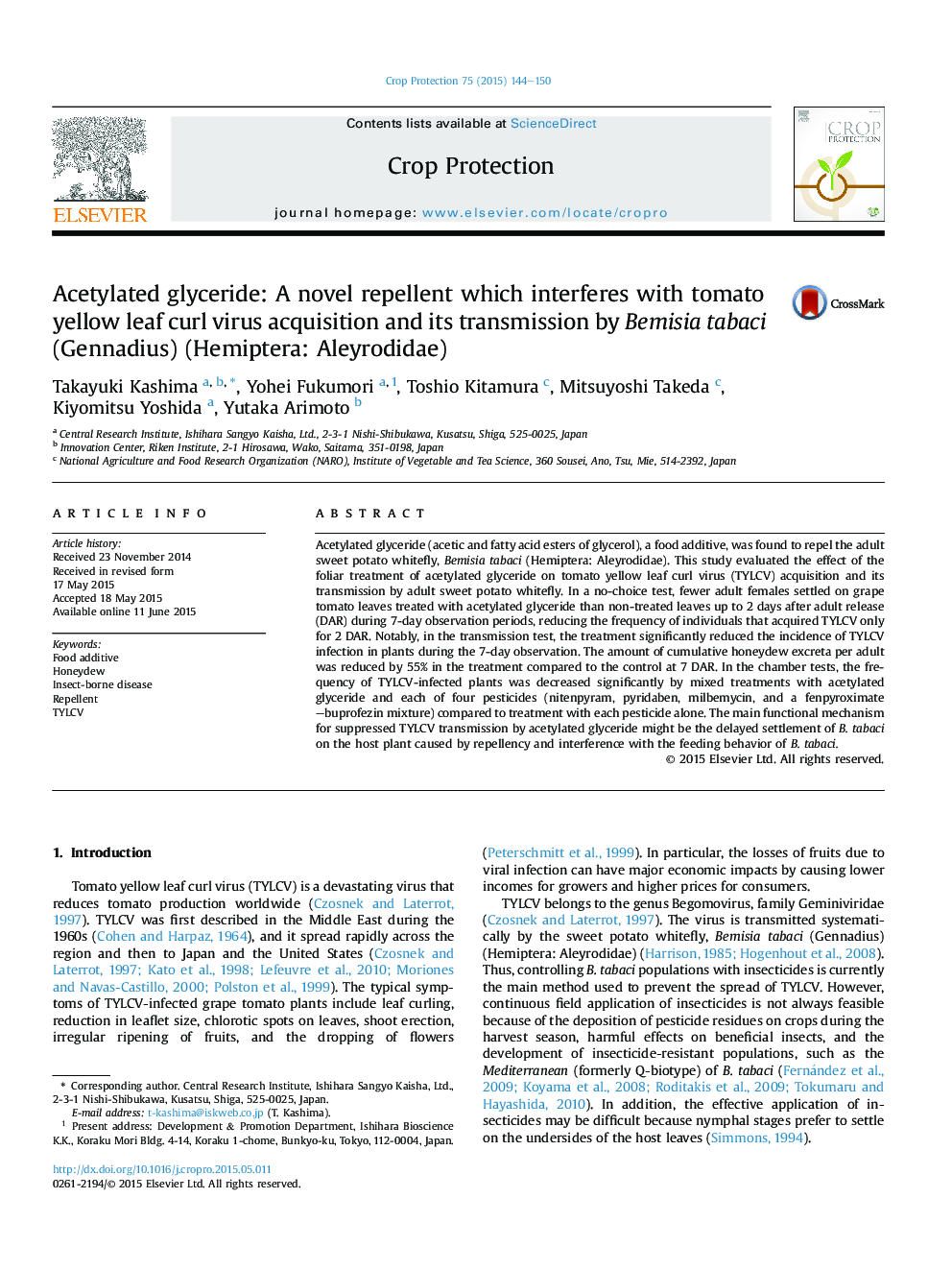| Article ID | Journal | Published Year | Pages | File Type |
|---|---|---|---|---|
| 6373511 | Crop Protection | 2015 | 7 Pages |
Abstract
Acetylated glyceride (acetic and fatty acid esters of glycerol), a food additive, was found to repel the adult sweet potato whitefly, Bemisia tabaci (Hemiptera: Aleyrodidae). This study evaluated the effect of the foliar treatment of acetylated glyceride on tomato yellow leaf curl virus (TYLCV) acquisition and its transmission by adult sweet potato whitefly. In a no-choice test, fewer adult females settled on grape tomato leaves treated with acetylated glyceride than non-treated leaves up to 2 days after adult release (DAR) during 7-day observation periods, reducing the frequency of individuals that acquired TYLCV only for 2 DAR. Notably, in the transmission test, the treatment significantly reduced the incidence of TYLCV infection in plants during the 7-day observation. The amount of cumulative honeydew excreta per adult was reduced by 55% in the treatment compared to the control at 7 DAR. In the chamber tests, the frequency of TYLCV-infected plants was decreased significantly by mixed treatments with acetylated glyceride and each of four pesticides (nitenpyram, pyridaben, milbemycin, and a fenpyroximate-buprofezin mixture) compared to treatment with each pesticide alone. The main functional mechanism for suppressed TYLCV transmission by acetylated glyceride might be the delayed settlement of B. tabaci on the host plant caused by repellency and interference with the feeding behavior of B. tabaci.
Keywords
Related Topics
Life Sciences
Agricultural and Biological Sciences
Agronomy and Crop Science
Authors
Takayuki Kashima, Yohei Fukumori, Toshio Kitamura, Mitsuyoshi Takeda, Kiyomitsu Yoshida, Yutaka Arimoto,
